If your dog ate cat litter, monitor for any abnormal symptoms and consult your veterinarian if necessary. The ingestion of cat litter by dogs can lead to potential health concerns.
As a dog owner, it is important to be aware of the potential risks associated with this behavior. Dogs eating cat litter can be a cause for concern as it may lead to health complications. The ingestion of cat litter by dogs may result in digestive issues, such as vomiting or diarrhea.
Additionally, the cat litter may contain harmful parasites or pathogens that can be transmitted to the dog, posing a risk to its health. It is essential to closely monitor the dog for any abnormal symptoms or changes in behavior and seek professional guidance from a veterinarian if needed. Understanding the repercussions and taking necessary precautions can help ensure the well-being of your pet.
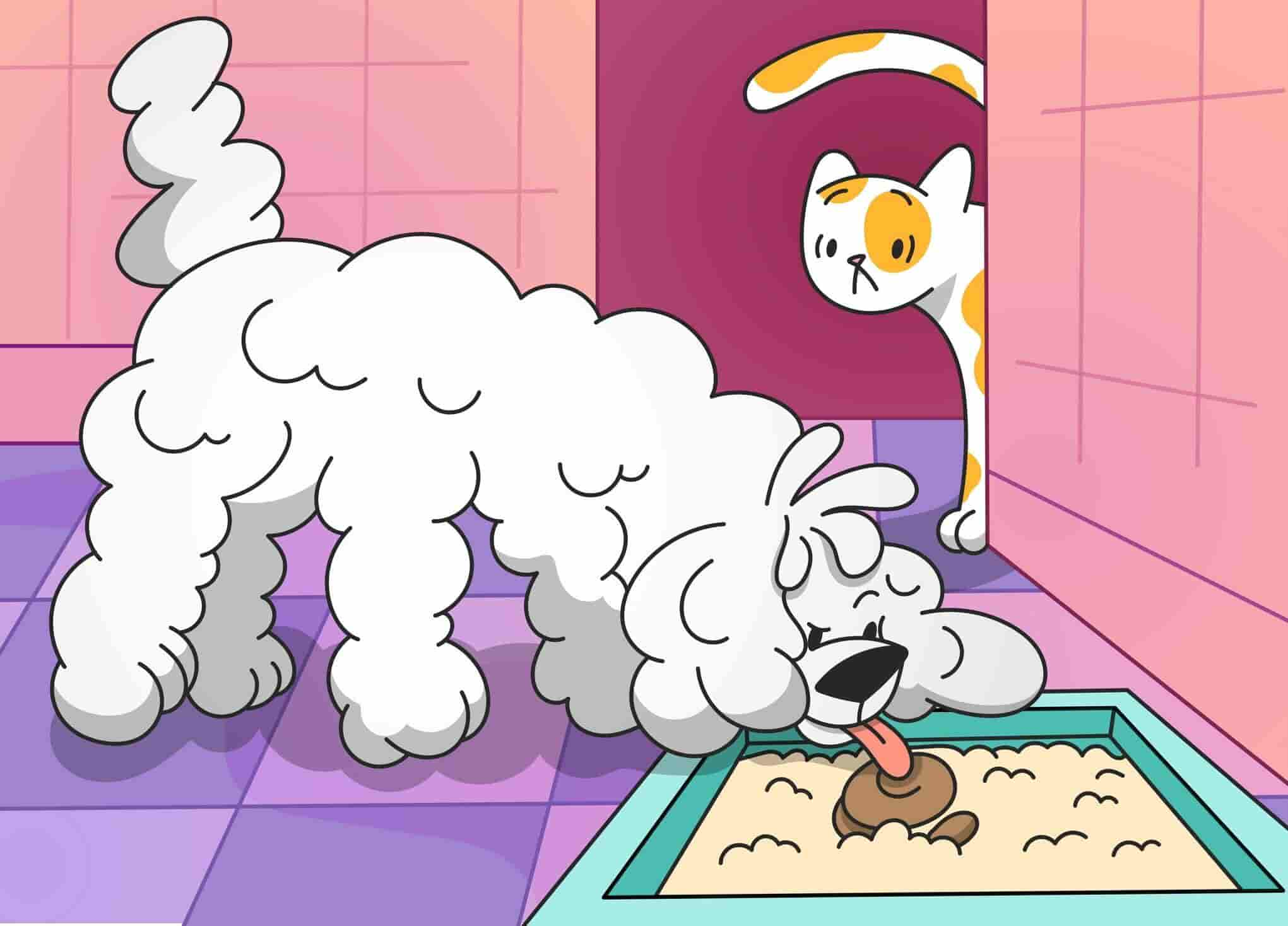
Credit: petcube.com
Consequences Of Ingesting Cat Litter
When a dog ingests cat litter, it can lead to potential health issues, including parasites like Toxoplasmosis, which is found in cat feces. Although cat litter is minimally toxic in small amounts, it is important to monitor your dog for any abnormal symptoms such as difficulty pooping or vomiting.
Digestive Blockage
Ingesting cat litter can lead to digestive blockage in dogs, especially if they consume a large amount of it. The clumping properties of some types of cat litter can cause the litter to swell in the digestive tract, leading to blockages that require immediate veterinary attention.
Toxicity Risks
- Clean cat litter is minimally toxic in small amounts.
- Dirty cat litter can also pose toxicity risks to dogs.
- There is a potential risk of parasites, such as worms, being transmitted to dogs through ingesting cat litter.

Credit: www.naturallyfreshlitter.com
Symptoms And Signs
If your dog ate cat litter, it can lead to potential side effects such as parasites and toxoplasmosis. Look out for symptoms like repeated vomiting, loss of appetite, and changes in bowel movements. Take your dog to the veterinarian if you notice any concerning signs.
Behavioral Changes
My dog ate cat litter, and it’s important to watch for any behavioral changes. Dogs may exhibit unusual behavior like increased restlessness or agitation.
- Restlessness
- Agitation
Physical Symptoms
Dog ate kitty litter, leading to possible physical symptoms. Keep an eye out for signs such as:
- Vomiting
- Diarrhea
- Loss of appetite
Immediate Steps
If your dog has ingested cat litter, monitor for unusual behavior or any signs of discomfort. It’s advisable to contact a veterinarian if you notice abnormal eating habits, vomiting, or changes in bowel movements. Remember to keep the litter box away from your dog’s reach to avoid further issues.
Contact A Veterinarian
If your dog has ingested cat litter, it’s important to contact a veterinarian as soon as possible. By reaching out to a professional, you can ensure that your furry friend receives the appropriate care and guidance for their specific situation.
Monitoring The Dog
While waiting for veterinary guidance, closely monitor your dog’s behavior and health. Observe any changes in their eating habits, bathroom routines, or overall demeanor. If you notice any abnormalities, it’s crucial to mention them to the veterinarian during your consultation.
In the meantime, keep an eye out for signs of distress or discomfort, such as vomiting, diarrhea, or constipation. Remember, dogs are curious creatures, and sometimes they may act out of curiosity by eating cat litter. However, it’s important to stay vigilant and proactive to ensure their well-being.
If your dog appears to have difficulty pooping, does not poop, or if their poop is abnormal, it’s recommended to reach out to the veterinarian immediately. Timely communication with the veterinary team is key to addressing any potential issues and ensuring your pet’s health is not compromised.
While it’s natural to feel concerned about your dog’s well-being after they have consumed cat litter, try to remain calm and focused. By taking immediate steps and seeking professional guidance, you can help your dog navigate this situation and recover swiftly.
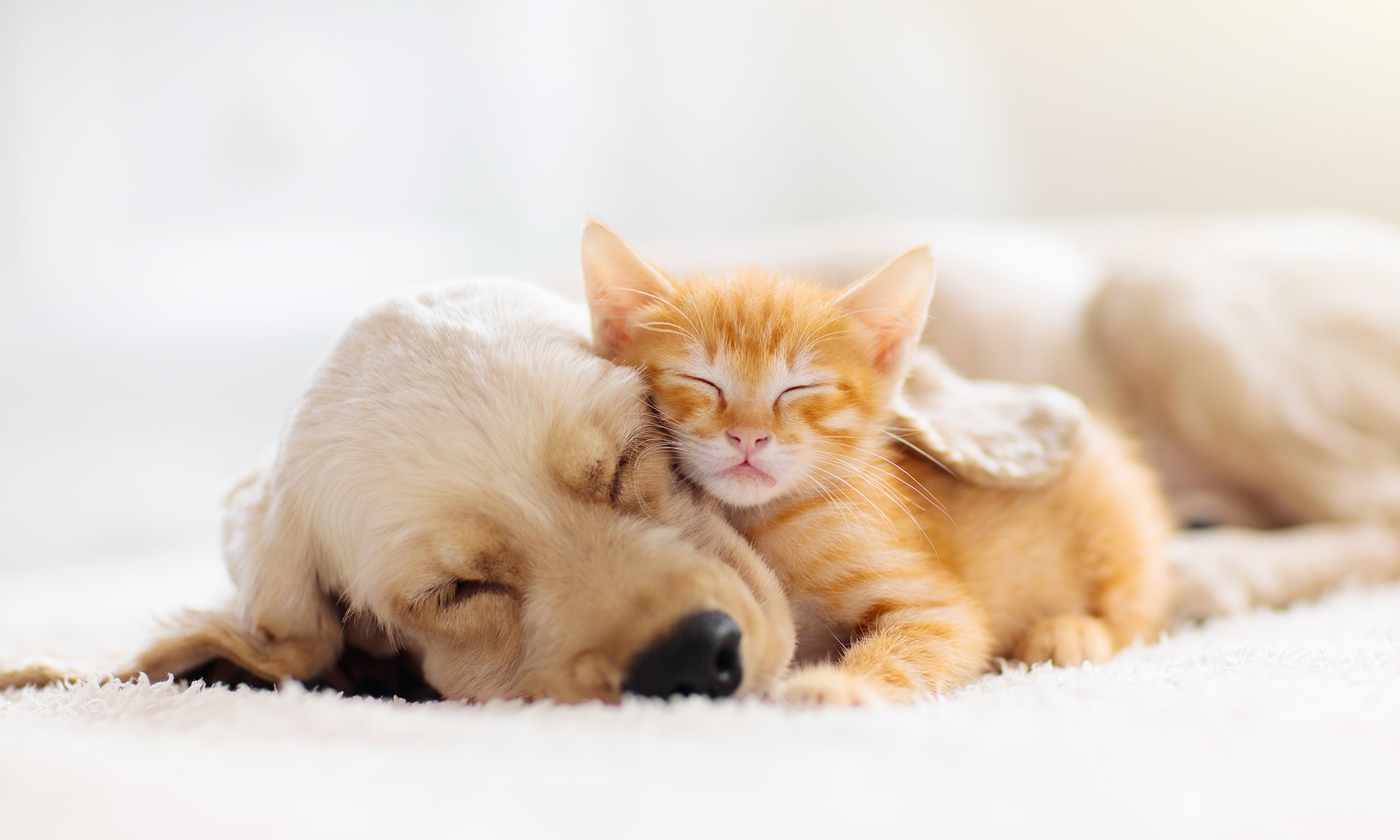
Credit: skooncatlitter.com
Treatment And Recovery
If your dog ate cat litter, monitor its behavior for any signs of discomfort or unusual bowel movements. Consult a veterinarian if you notice any digestive issues to ensure your pet’s health and well-being. Proper treatment and recovery are essential for your dog’s overall safety.
After discovering that your dog ate cat litter, it’s crucial to understand the necessary treatment and recovery process to ensure your furry friend’s well-being. The situation can be concerning for pet owners, but with prompt action and proper care, the potential risks can be minimized.
Medical Intervention
If your dog has ingested cat litter, it’s imperative to seek veterinary guidance promptly. Medical intervention is necessary to assess the potential health implications and provide appropriate treatment. The vet may conduct tests to determine any underlying issues and administer suitable medication if needed.
Home Care
While professional medical assistance is crucial, there are measures you can take at home to aid in your dog’s recovery. Ensure your dog has access to plenty of clean water to help flush out any toxins or foreign substances. Monitoring your dog’s behavior and bowel movements is essential to identify any abnormal symptoms.
If your dog displays signs of distress or gastrointestinal issues, contacting the veterinarian promptly is recommended. In conclusion, addressing the situation of a dog ingesting cat litter requires a proactive approach. Consulting a vet for medical intervention and providing attentive home care are essential steps in ensuring the well-being and recovery of your beloved pet.
Preventive Measures
Ensuring your dog does not ingest cat litter is crucial for their health and safety. Implementing preventive measures can help avoid any potential risks associated with my dog ate cat litter or dog ate kitty litter.
Litter Box Management
Properly managing the litter box can significantly reduce the chances of your dog accessing and consuming cat litter. Here are some key tips:
- Place the litter box in a location that is inaccessible to your dog.
- Use a covered litter box to prevent easy access.
- Regularly clean and scoop the litter box to minimize exposure.
- Consider using a pet-safe deterrent spray around the litter box.
Alternative Solutions
If you are looking for alternative ways to address the issue of dog eating cat litter, here are some effective measures:
- Provide your dog with sufficient exercise and mental stimulation to reduce their curiosity towards the litter box.
- Consider switching to a dog-friendly litter alternative, such as paper-based litter.
- Consult with your veterinarian for specific dietary recommendations that may deter your dog from consuming cat litter.
Understanding Ingestion Motivations
Instinctual Behaviors
Dogs may exhibit instinctual behaviors that drive them to eat cat litter. As natural scavengers, dogs may be attracted to the scent and texture of cat litter, mistaking it for food.
Environmental Factors
Environmental factors, such as accessibility to the litter box and scent of the cat waste, can contribute to a dog’s curiosity and desire to consume cat litter.
Frequently Asked Questions
What Happens If My Dog Eats Out Of The Litter Box?
If your dog eats from the litter box, they can get parasites and ingest toxins. Look for unusual behavior and consult a vet if concerned.
Is Cat Litter Poisonous If Eaten?
If clean, cat litter is minimally toxic in small amounts. Dirty litter can also pose minimal toxicity risk.
Are Cat Litter Pellets Toxic To Dogs?
Yes, cat litter pellets can be toxic to dogs if ingested in large amounts. It’s important to monitor your dog for symptoms and contact a veterinarian if you notice any signs of distress. Additionally, dogs can contract parasites from cat litter, so it’s crucial to seek veterinary care if needed.
Can Dogs Get Worms From Eating Cat Litter?
Yes, dogs can get worms from eating cat litter. Worms can survive in cat feces and infect dogs.
Conclusion
If your dog has ingested cat litter, monitor for any unusual behavior or symptoms. It’s essential to consult a veterinarian if you notice vomiting, lack of appetite, or abnormal bowel movements. Keep the litter box inaccessible to prevent any further incidents.
Ensuring your pet’s safety is of utmost importance.


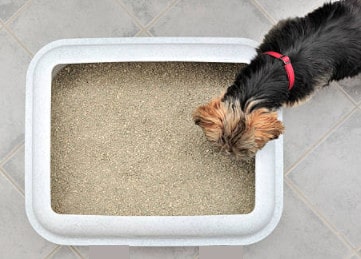
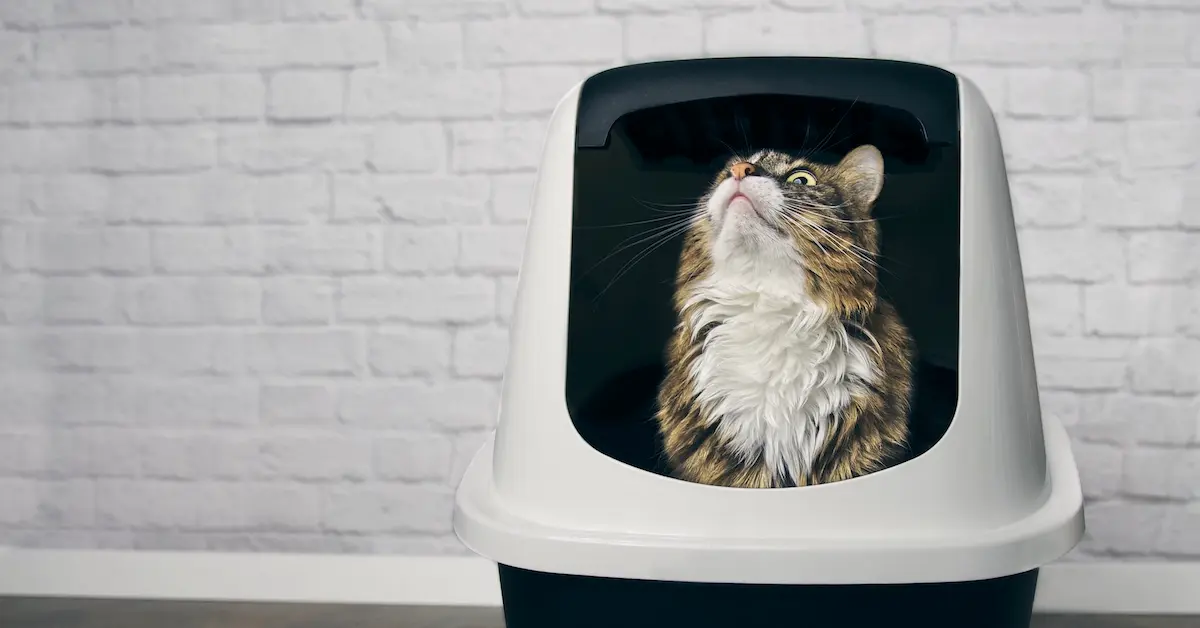
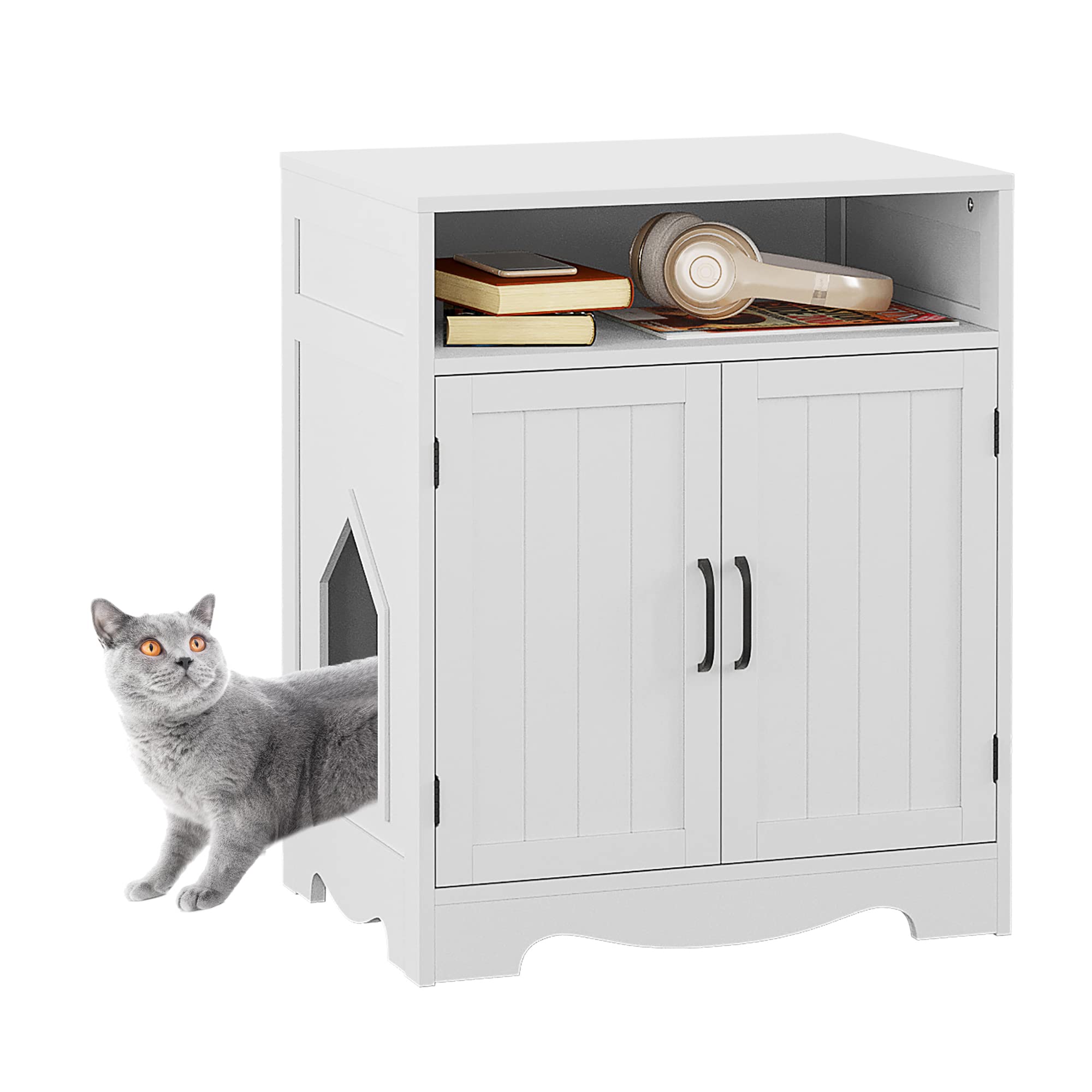
2 Responses